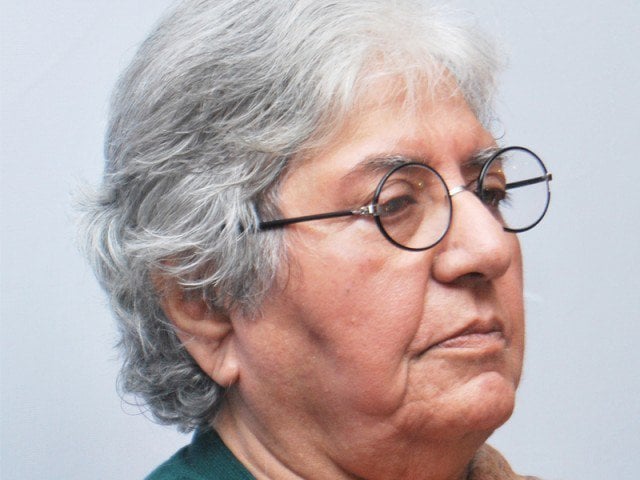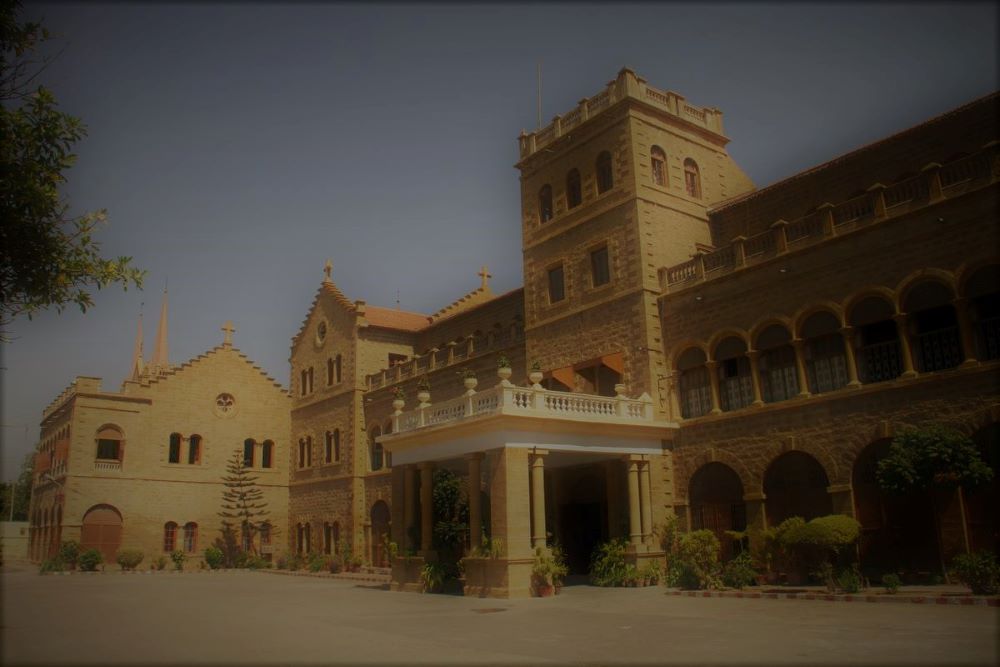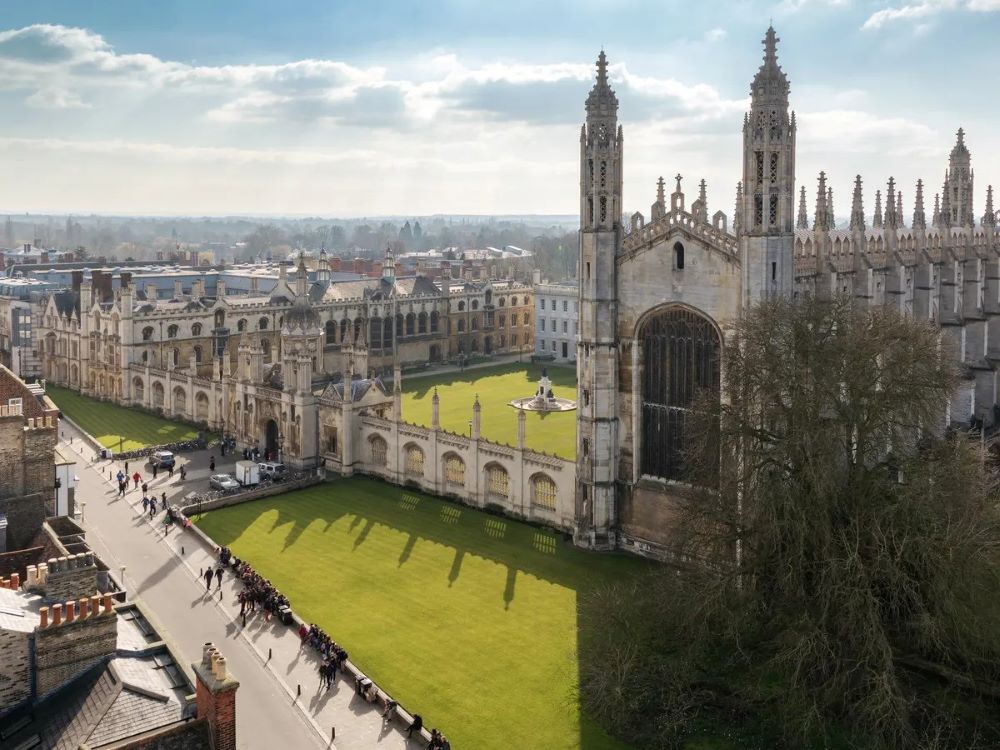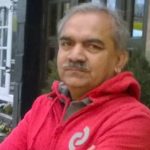
If we are determined to write our social history, then we need to explore alternative sources and interpret evidences – Dr. Hamida Khuhro
[Translator’s note: This is a translation of renowned historian Dr. Hamida Khuhro’s comprehensive interview, originally published in the Sindhi magazine Nao Niapo, Karachi in May, 1986. The interview panel consisted of Advocate Masood Noorani, Journalist Nasir Aijaz and Faqir Muhammad Lashari, with Mansoor Qadir Junjo’s assistance to the interviewers. Masood Noonari also contributed observation notes from his initial meeting with Dr. Khuhro, which were used as a preamble to the interview. The interview was later included in an anthology that contained interviews of Dr. Khuhro, published in various Sindhi newspapers and magazines.
In 2021, Dr. Hamida Khuhro Foundation, Sindh (Karachi-Hyderabad) published Nao Napo magazine’s interview as a separate booklet with a title of ‘Tareekh Ji Amhon Samhon’ (Face-to-Face with History). The booklet includes a preface by Mansoor Qadir Junejo. This is the first part of the English translation of her interview. The subsequent parts will also be published in Sindh Courier – Zaffar Junejo]
Masood Noorani (MN): Please tell us about your earlier years. I mean, appraise us about your schooling and educational institutions where you received an education.
Dr. Hamida Khuhro (HK): I received my primary education in my village Aqil (Larkana), now known as Nao Aqil, which is roughly three to four miles from Larkana city. Afterward, I moved to Karachi and enrolled in Patel Paro’s Sindhi medium school that area is now generally known as Nishatar Park. Unfortunately, after the partition of India, that Sindhi medium school closed down. However, I did complete my third grade at that school and then transferred to Saint Joseph Convent Karachi. That sums up my school education.
MN: Which year did you complete your education?
HK: I completed my Senior Cambridge in 1951, obtained my B.A. degree in 1954, and earned Masters in History in 1956. Later, in 1961, I pursued the Tripos (B.A Hons., M.A.) in History at the University of Cambridge. I completed my Ph.D. in history from the University of London in 1965. Afterward, I returned to Sindh and went to the UK again for a fellowship at Oxford University. As a fellow, I was responsible for teaching and conducting research. The fellowship lasted from 1970 to 1973. Then, I returned and joined Sindh University as a professor.

MN: During your education, did any person or event influence you? Can you recall a teacher or a particular event that had a lasting impact on you?
HK: (She paused for a moment) I don’t think so, not during my educational years. However, I do remember Dr. Gurbakhshani. He used to meet my father as they were close friends. Although it wasn’t a serious or highly academic encounter, he was the one who introduced me to Sindhi literature. He gave me Shah Abdul Latif’s Risalo and another book, possibly titled ‘Noor Jehan’…
(As the sound of the air conditioner was causing disruption in recording, the AC was turned off. Dr. Khuhro said, “Don’t worry, we will move to another room in half an hour. My daughter is currently studying there, and I don’t want to disturb her.” All the windows and doors of the room were closed, and we all felt suffocated. However, we continued the conversation in a slightly subdued environment.)
MN: Please continue. You were telling us about a book?
HK: Yes, I was talking about Dr. Gurbakhshani. In fact, he was the one who introduced Sindhi literature to me. But I don’t claim to know more about Sindhi literature. I only studied Sindhi language until class three, and despite such limited exposure, I was able to read Sindhi. I continued reading Diplai’s novels. Even now I can read Sindhi, but I am not confident in writing it.
Faqir Muhammad Lashari (FM): Madam, when you came back from London, in Sann you spoke in Sindhi, but you were not fluent?
HK: Yes, that is correct. Just imagine a person who studied Sindhi until the age of eight or nine and then moved to Karachi and eventually abroad. Additionally, in my subsequent schools, Sindhi and Urdu were not taught. From then on, I read and studied in either English or French. So, it was evident that my Sindhi was not perfect, and I was not fluent.
MN: My question remains unanswered?
HK: I can’t say that I was influenced by anyone. However, during the time of the Muslim League, there was a significant influence, and it had an impact on me. Similarly, I was also influenced by the Pakistan Movement.
Nasir Aijaz (NA): What compelled you to choose history as a subject?
HK: During my student days, English language was a very popular subject among students. One day, I discussed this with my nuns who used to teach us at the convent school. They suggested that if I wanted to serve my country, then English was not a relevant subject. They recommended that I choose history as it would help me understand our background. I liked their suggestion. Therefore, during my time at Joseph Convent, I decided to study history.
MN: Let me ask a question related to history as a subject. Recently, I read Dr. Mubark Ali’s book, ‘How Sindh’s History Should Be Written?’ In summary, he argues that almost all histories are chronologies of kings. The book mentions that their courtiers or companions were cheaters, or conspirators, while kings’ graves and tombs are highlighted. Dr. Mubark suggests that these books do not mention the peoples’ perspective or resistance movements. Furthermore, historical books like Tuhfatulkiram or others also follow the same approach. Dr. Mubark contends that our history should be written from the peoples’ perspective, with analysis and a focus on the deep social issues of those times. In conclusion, let me phrase my question: as a historian, are you satisfied with this type of history writing?

HK: Look, if you are a historian, then you are probably well aware that all histories are written in alignment with the whims and wishes of kings or authored by chronologists who were regular members of their gatherings and frequent visitors to their courts. However, there was another group of historians who wrote against kings. One of them was Khafi Khan, who wrote against Aurangzeb. But even then, the focus was primarily on the kings, and they rarely touched upon the lives of the people and society. It is evident that whatever has been written in the name of history has been authored by beneficiaries of kings, and this is not unique to our region. Similar situations have occurred in other parts of the world as well. In any case, if we are determined to write our social history, then we need to explore alternative sources and interpret evidences. It is not necessary that these resources or evidences might have been explored and discussed in official or royal histories. However, we must not forget that histories always reveal the inherent contradictions of society. We must also carefully observe that when one writes history, they must keep an eye on the interpretation of facts and the analysis of embedded contradictions. For example, if one writes about the army, do they write about discrepancies in salaries, benefits, and perks among the soldiers? Do they write about their food? And what about the lives of the common people in those particular times?
We do not have full records of Sindh’s revenue. The old ones have been destroyed due to various reasons. However, you may find some records in the collectors’ offices.
We should not ignore the fact that there are many alternative sources for gathering evidence. These non-traditional sources could include folktales and other people-centered subjects. In this regard, English scholars have taken advanced measures. Their written or edited social histories show that they have used varied sources such as registers, revenue records, and other non-traditional records. Our challenge is that we do not have organized or well-preserved records. Interestingly, we only have records from the English era. But in the last thirty or forty years, none of us has taken measures to maintain or organize them for future scholars. I am confident in stating this because, as a researcher, I have experienced all these difficulties and challenges. Honestly, we do not have full records of Sindh’s revenue. The old ones have been destroyed due to various reasons. However, you may find some records in the collectors’ offices. I still remember that I always encouraged my students to write about our history, but they expressed more interest in writing about the life of Prophet Muhammad (Peace be upon him) or Islam. If you try to inform or educate them about modern research methods, you will fail. They end their learning with a resounding ‘No.’ They are not ready to learn that research means exploring and looking at original resources.
Most of the students are simply longing to obtain a Ph.D. degree, employing whatever crooked or unethical measures they can, without any sense of guilt.
Now, if we are determined to write Sindh’s social history, the question arises: who will do it? Obviously, it is the task of research students, and as students, they have ample time to collect sources and travel to far-flung areas. And let us not forget that it is the duty of professors to guide them academically. Let me further explain with an example. If we agree to conduct research on Sindh’s social history, then I would need at least six committed students. I could assign one student to gather data about Larkana, another to collect all information about Sukkur, and a third to focus on another area and so on. All of them would gather their information. Sadly, no one has taken such systematic steps. Honestly, we have failed to find such an enthusiastic group of students. Most of them are simply longing to obtain a Ph.D. degree, employing whatever crooked or unethical measures they can, without any sense of guilt. They believe that earning a Ph.D. requires the same tools and techniques what they used to obtain their M.A. degrees—just reading a few books on their subjects and taking their examinations. If they intend to write, their chosen topics are limited and generally revolve around Pakistan and the Pakistan Movement, etc. None of them aspires to write Sindh’s social history. (Continues)
Click here for Part-I and Part-II (Preamble)
___________________
 Dr. Zaffar Junejo is a historian and a writer, having earned Doctorate from the Department of History University of Malaya, Malaysia. Presently, Mr. Junejo is associated with the European University Institute, Florence, Italy. Apart from scholarly contribution, he also writes for popular media. He could be accessed at: Email junejozi@gmail.com, Cell/WhatsApp +92 334 045 5333 Skype Zaffar.Junejo Facebook facebook.com/zaffar.junejo
Dr. Zaffar Junejo is a historian and a writer, having earned Doctorate from the Department of History University of Malaya, Malaysia. Presently, Mr. Junejo is associated with the European University Institute, Florence, Italy. Apart from scholarly contribution, he also writes for popular media. He could be accessed at: Email junejozi@gmail.com, Cell/WhatsApp +92 334 045 5333 Skype Zaffar.Junejo Facebook facebook.com/zaffar.junejo